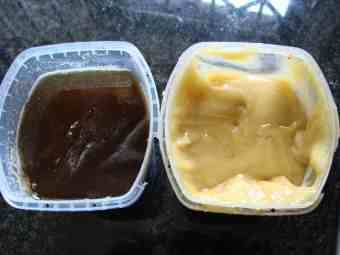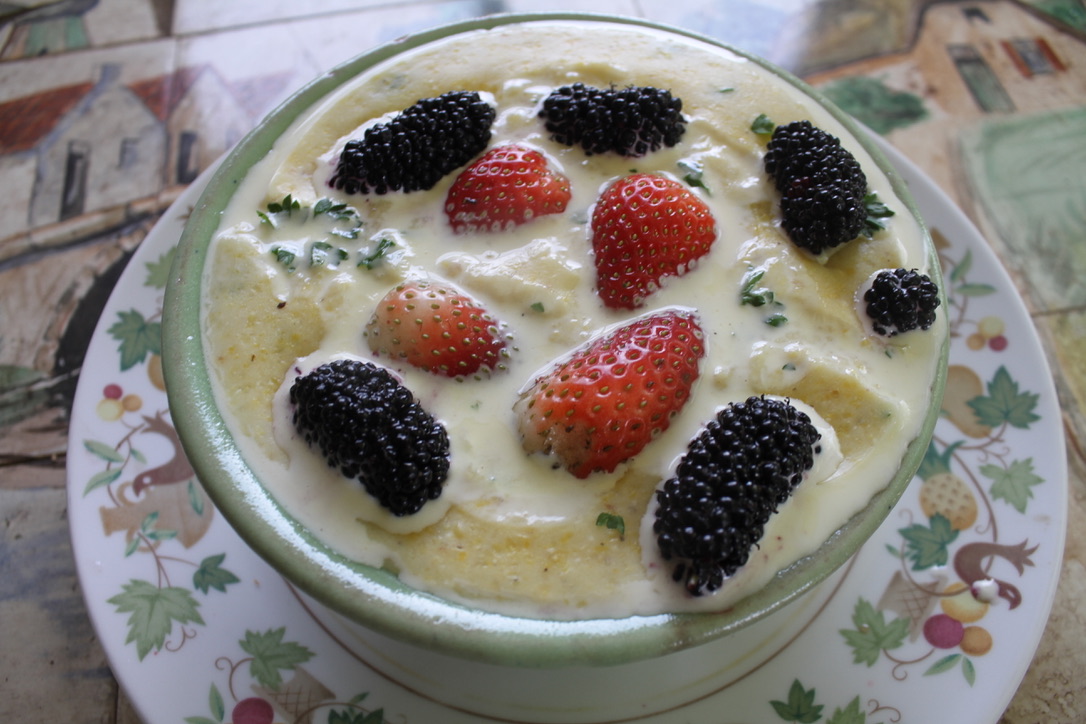- Bernard Preston homepage
- Keto
- Artificial Sweeteners Cause Weight Gain
Artificial sweeteners cause weight gain
Artificial sweeteners cause weight gain by disturbing the usual neuro-hormonal mechanisms; worse, they raise the risk of metabolic syndrome by 44%.
41% of Americans consume non-sugar sweeteners[6].
Initially there was universally a sigh of relief. We did not have to pull the sweet tooth after all; we could have our cake and eat it, so to speak. Steadily the pile of evidence of the detrimental effect of sugar grew, adding to what we already knew; it's toxic stuff. But there is luckily a healthy alternative; or is it?
Quick guide
Cakes, cookies and soft drinks

With the advent of artificial sweeteners we thought we could continue to enjoy our cakes, cookies and soft drinks. Alas, this has categorically been shown not to be so. They cause weight gain and more than double the risk of diabetes just like sugar does; especially saccharin according to researchers from the University of Minnesota.
There simply is no alternative. If we want to live long in the land we do have to pull the sweet tooth.
The ghastly alternative is constant dieting, medication and frequent consultations with doctors. We should neither have our cake, nor eat it regularly with any sort of NSS treat. Keep puddings, sweet delicacies and soft drinks for high and holy days.
There is no other way if we want to live free from pain and the many diseases associated with chronically raised blood glucose; of the pancreas, liver and kidneys, for example.
High Fructose Corn Syrup
There is a strong correlation between the increased use of High Fructose Corn Syrup and the prevalence of obesity. To date there is no definitive evidence of causation.
In particular HFCS used in Sugary Sweetened Beverages since 1970 (it is cheaper to produce) has paralleled the rise in metabolic syndrome, diabetes and obesity in children; and young adults in particular.
Whole foods contain large amounts of fibre which sends satiety signals to the hunger centre in the hypothalamus via the intestinal flora. SSBs have copious energy in liquid form, bypassing this normal physiology which should cause us to reduce consumption at mealtimes to compensate for all the calories.
This has still to be conclusively proved; but the writing is on the wall for HFCS.
Of great concern is that around 50% of commercial honey is now adulterated with HFCS.
Metabolic syndrome
Metabolic syndrome[1] is a cluster of signs that increases the risk of cardiovascular disease and type-2 diabetes.
- High blood pressure
- Raised blood glucose
- Body fat especially around the waist
- Abnormal blood fats
It's long been known that copious amounts of dietary sugar contribute to metabolic syndrome, pain and suffering. Alas, artificial sweeteners do exactly the same though the mechanisms are different. They interfere with our neuro-hormonal processes; they still cause increased food cravings.
We are left constantly hungry; they do not give the satiety that the good fats, protein and fibre in whole meals provide.
Now the average person enjoying typical grocery store food is having around 80 grams of sugar (16 teaspoons) each and every day; plus 41% of Americans are using artificial sweeteners. Even worse is the large amount of glucose that refined flour contributes to our carbs; the perfect storm.
"Americans are having dessert several times a day and don't know it."
- Dr. Alan Greene, pediatrician.
Research
Researchers contributing to Current Opinion in Cardiology describe artificial sweeteners as one of the "ultra-processed foods." They investigated the impact these chemicals are having on vascular disease[2].
They found that artificial sweeteners do not encourage weight loss. Quite the contrary, there is evidence showing added pounds from the negative effect they have on satiety and the microbiome.
In addition they increase the risk of type-2 diabetes by around 20%.
Why does this happen?
Dr Gómez-Delgado, internal medicine specialist says their research found there are at least three reasons why artificial sweeteners cause an increase in weight and raise the spectre of metabolic syndrome.
- Satiety, the feeling of fullness is delayed.
- They induce excessive insulin secretion by the pancreas, increasing blood pressure.
- They impact negatively on the friendly bugs in the intestine that have so many important functions.
Dr. Perez-Martínez, MD says they are now considering whether artificial sweeteners should be considered as a new cardiovascular risk factor; along with smoking, obesity and hypertension.
They are now looking at legislation to regulate the consumption of artificial sweeteners; currently food is not labelled with clear and simple information about how NSSs impact on our wellness.
They stress the importance of natural whole foods and more exercise; they do not cause weight gain.
In short there is currently simply no alternative to pulling the sweet tooth. Whether it's sugar or a NSS they both increase the likelihood of blood pressure and diabetes medication.
The American Heart Association recommends no more than 6 teaspoons of sugar per day; 30 grams. These Spanish medical specialists would add to that zero consumption of artificial sweeteners.
There is no getting away from it; artificial sweeteners cause weight gain.
"Nations grow lazy. They love the bondage of grocery store food, choosing ease over the strenuous liberty of locating or growing natural fruits and vegetables; legumes and whole grains too."
- with apologies to John Milton.
Advanced Glycation End-Products
When plasma sugar is chronically raised, glucose molecules attach spontaneously to receptors on proteins and fats forming what are known as Advanced Glycation End-products (AGEs).
They accumulate in the walls of capillaries blocking the release of nitric oxide that lowers blood pressure; and produce "reactive oxygen species" that damage our DNA.
The net result is vascular disease affecting especially the lungs and the eyes; but in reality the whole body.
Because artificial sweeteners also cause raised blood glucose, they contribute to the formation of AGEs and explain the mechanism why those suffering from prediabetes are more susceptible to viruses that target the lungs; and eye diseases.
Artificial sweeteners harm cognitive function
Folk under 60 who consumed the largest amounts of artificial sweeteners compared to those who used the least were found to have 62% faster decline in memory and overall thinking. Testing was done on a very large sample of people (12,772 adults) over a long period (11 years).
Oddly older folk seem unaffected. The decline was strongest in younger adults.
Those who were insulin resistant were particularly vulnerable. Advice was to use fruit, natural honey and spices for flavouring; and to move towards whole unrefined foods.
Is honey an alternative?
 Natural unprocessed honeys have a low GI
Natural unprocessed honeys have a low GIThere is nothing simple about nutrition. Our bodies view all foods differently depending on how they have been processed; and whatever else we are consuming.
- The sugars in an apple have a completely different effect to those in the juice or high-fructose corn syrup.
- Chewing on a stick of sugar cane is actually beneficial to the teeth.
- 100% whole grains like corn on the cob are quite different to ultra-refined grits.
The same applies to honey. Researchers in Germany after testing the products from 8 different nectars[3] concluded that once processed by commercial bottlers they have an extremely high glycemic index; worse than sugar.
However honey from small beekeepers that is neither heated in any way, nor filtered of the pollen actually with one exception has a low GI; in fact it helps to reduce the fasting blood glucose of diabetics[4].
Perhaps processed honey should also be viewed as an artificial sweetener that causes weight gain.
Combined effect of sweeteners
It has long been established that negative factors are additive and cumulative. The smoker who is also obese has a very poor outlook when it comes to the chronic degenerative diseases like diabetes and stroke.
In addition the many ultra-processed foods found in the grocery store today are loaded with sweeteners of one sort or another, refined flour and various unhealthy fats. Hot cross buns enjoyed once a year at Easter are probably fine; eaten regularly they are a disaster.
The linoleic acid in soybean and sunflower oil is highly inflammatory. Added to pastries along with artificial sweeteners there is virtually certain weight gain. The scientists are still arguing about saturated fats but they too should only be enjoyed in moderation; they do provide satiety.
- Butter is back if enjoyed with whole grains and plenty of salads.
There is general agreement about the trans-fats in margarine; avoid them along with artificial sweeteners that cause inflammation and weight gain.
"In 2018 the World Health Organization called for a total ban on trans-fats due to causation of 500 million early deaths per year globally."
- Medscape
Manufacturers
are allowed to claim “0 trans fat” on their Nutrition Facts labels even
if their products have up to half a gram per 14g serving (1 TBSP); another of the Big Fat Lies.
 Stone ground cheesy grits
Stone ground cheesy gritsErythritol is a sugar substitute linked to heart disease
Erythritol is a "natural" sugar substitute; so it does not need to be labelled as an artificial sweetener. The problem is that above certain concentrations it causes clumping of the red blood cells. It will not raise serum glucose or increase insulin resistance; but it does significantly affect the tendency to form clots.
Those with higher levels of erythritol have a 80% greater chance of having a major adverse cardiovascular event[5]. According to the researchers it "fosters enhanced thrombosis."
Our standpoint is straightforward; pull the sweet tooth. It takes only two weeks to break the habit with tea and coffee. Having done that, face the chocolate cake; high and holy days only.
A hot cocoa drink sweetened with natural honey is the perfect substitute for chocolate. In fact it's nicer, far cheaper and actually promotes wellness.
We simply cannot escape it; artificial sweeteners cause weight gain just as sugar does. Researchers from the University of Minnesota found that they increase visceral, intermuscular and subcutaneous adipose tissue too[8].
Xylitol
Xylitol is another sugar substitute that has been declared safe for decades. It is used in gum, toothpaste and many processed foods; a low-calorie sweetener.
Research published in the European Heart Journal found that it too is prothrombotic (fosters clot formation) and is associated with a 57% increased risk of cardiovascular disease[7].
It may be counter-intuitive but we have to face it; artificial sweeteners cause weight gain and a host of cardiovascular diseases.
Vegans
Vegans are between a rock and hard place if they have a sweet tooth. Neither able to use erythritol nor honey they may be tempted to go back to sugar.
Other pathogens
Stool samples contain a higher relative abundance of Klebsiella, Escherichia Shigella and Salmonella bacteria in those using non-sugar sweeteners; they are pathogens associated with pneumonia and diarrhoea[6].
Cancer
The World Health Organisation now states categorically that non-sugar sweeteners increase the risk of bladder cancer; and specifically aspartame of causing malignant liver tumours[6].
Inflammation
Inflammation in the first instance plays an important role in our immune response to pathogens; it is a normal part of the "host defense mechanism." This is a very complex subject, not to be discussed here. Simply put, these non-sugar sweeteners interfere in this process in the intestine but in different ways.
Artificial sweeteners cause weight gain
Artificial sweeteners cause weight gain due to the loss of satiety. They interfere with the production of a peptide (one of the "incretin hormones") in the small intestine that regulates that sense of fullness whilst still enjoying an uncompleted too-large meal.
- Causes and symptoms of Metabolic Syndrome from Mayo Clinic
- Artificial sweeteners and cardiovascular risk @ Current Opinion in Cardiology
- Glycaemic and Insulinaemic properties of some German honey varieties.
- Effects of natural honey consumption on diabetic patients
- The artificial sweetener erythritol and cardiovascular event risk
- Consuming artificial sweeteners may alter the structure and function of duodenal microbial communities
- Xylitol is prothrombotic and associated with cardiovascular risk
- Diet Drinks, Saccharin Tied to Increased Diabetes Risk
When browsing use right click and "Open Link in New Tab" or you may get a bad gateway signal.
Commonly asked questions
Do artificial sweeteners make you gain weight?
The research is now unequivocal; artificial sweeteners make you gain weight. They do this by interfering with the microbiome, that massive body of friendly bugs that inhabits the intestines.
Which sweetener does not cause weight gain?
Stevia apparently does not cause weight gain. Nevertheless WebMD reports that there is no convincing evidence that it helps prevent obesity; and it may provoke bloating, nausea and dizziness.
Newsletter
Our newsletter is entitled "create a cyan zone" at your home, preserving both yourself and Mother Earth for future generations; and the family too, of course. We promise not to spam you with daily emails promoting various products. You may get an occasional nudge to buy one of my books.
Here are the back issues.
- Lifestyle and ideal body weight
- What are ultra-processed foods?
- Investing in long-term health
- Diseases from plastic exposure
- Intensive lifestyle management for obesity has limited value
- A world largely devoid of Parkinson's Disease
- The impact of friendly bacteria in the tum on the prevention of cancer
- There's a hole in the bucket
- Everyone is talking about weight loss drugs
- Pull the sweet tooth
- If you suffer from heartburn plant a susu
- Refined maize meal and stunting
- Should agriculture and industry get priority for water and electricity?
- Nature is calling
- Mill your own flour
- Bake your own sourdough bread
- Microplastics from our water
- Alternative types of water storage
- Wear your clothes out
- Comfort foods
- Create a bee-friendly environment
- Go to bed slightly hungry
- Keep bees
- Blue zone folk are religious
- Reduce plastic waste
- Family is important
- What can go in compost?
- Grow broad beans for longevity
- Harvest and store sunshine
- Blue zone exercise
- Harvest and store your rainwater
- Create a cyan zone at your home
Did you find this page interesting? How about forwarding it to a friendly book or food junkie? Better still, a social media tick would help.
- Bernard Preston homepage
- Keto
- Artificial Sweeteners Cause Weight Gain
Address:
56 Groenekloof Rd,
Hilton, KZN
South Africa
Website:
https://www.bernard-preston.com